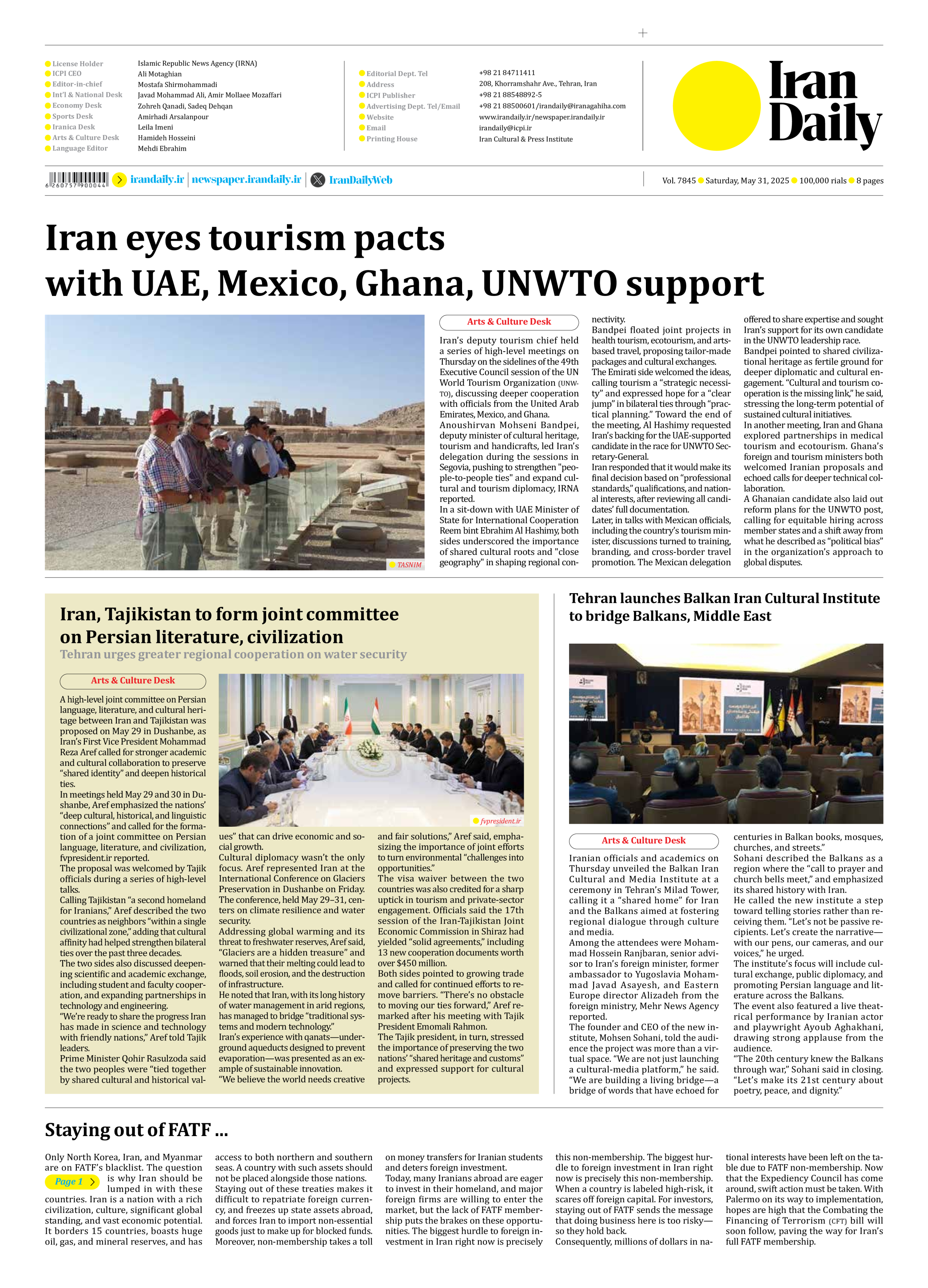
Iran, Tajikistan to form joint committee on Persian literature, civilization
Tehran urges greater regional cooperation on water security
A high-level joint committee on Persian language, literature, and cultural heritage between Iran and Tajikistan was proposed on May 29 in Dushanbe, as Iran’s First Vice President Mohammad Reza Aref called for stronger academic and cultural collaboration to preserve “shared identity” and deepen historical ties.
In meetings held May 29 and 30 in Dushanbe, Aref emphasized the nations’ “deep cultural, historical, and linguistic connections” and called for the formation of a joint committee on Persian language, literature, and civilization, fvpresident.ir reported.
The proposal was welcomed by Tajik officials during a series of high-level talks.
Calling Tajikistan “a second homeland for Iranians,” Aref described the two countries as neighbors “within a single civilizational zone,” adding that cultural affinity had helped strengthen bilateral ties over the past three decades.
The two sides also discussed deepening scientific and academic exchange, including student and faculty cooperation, and expanding partnerships in technology and engineering.
“We’re ready to share the progress Iran has made in science and technology with friendly nations,” Aref told Tajik leaders.
Prime Minister Qohir Rasulzoda said the two peoples were “tied together by shared cultural and historical values” that can drive economic and social growth.
Cultural diplomacy wasn’t the only focus. Aref represented Iran at the International Conference on Glaciers Preservation in Dushanbe on Friday. The conference, held May 29–31, centers on climate resilience and water security.
Addressing global warming and its threat to freshwater reserves, Aref said, “Glaciers are a hidden treasure” and warned that their melting could lead to floods, soil erosion, and the destruction of infrastructure.
He noted that Iran, with its long history of water management in arid regions, has managed to bridge “traditional systems and modern technology.”
Iran’s experience with qanats—underground aqueducts designed to prevent evaporation—was presented as an example of sustainable innovation.
“We believe the world needs creative and fair solutions,” Aref said, emphasizing the importance of joint efforts to turn environmental “challenges into opportunities.”
The visa waiver between the two countries was also credited for a sharp uptick in tourism and private-sector engagement. Officials said the 17th session of the Iran-Tajikistan Joint Economic Commission in Shiraz had yielded “solid agreements,” including 13 new cooperation documents worth over $450 million.
Both sides pointed to growing trade and called for continued efforts to remove barriers. “There’s no obstacle to moving our ties forward,” Aref remarked after his meeting with Tajik President Emomali Rahmon.
The Tajik president, in turn, stressed the importance of preserving the two nations’ “shared heritage and customs” and expressed support for cultural projects.







